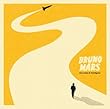 By Daniel Garrett
By Daniel Garrett
Bruno Mars, Doo-Wops & Hooligans
Executive Producers: The Smeezingtons
Elektra/Warner, 2010
He is a sweet and talented boy. What’s going to become of such a precocious young man, who, adept at the piano and guitar, views the music of the past as if it were a giant storehouse of candy, to which he has the key? The singer-songwriter, Peter Hernandez, who calls himself Bruno Mars is, already, an exemplar of international popular music; and his antecedents might be Berry Gordy’s Motown (Smokey, the Supremes, and Michael), Elton John, Donna Summer, Seal, and Ricky Martin, just to name a few. Bruno Mars is intimate and intense from the first song on his album Doo–Wops & Hooligans, in the song “Grenade,” declaring that he would take a bullet in the brain for the woman he loves, “but you won’t do the same.” His head full of romance and rebuke, he calls the desired woman a bad woman, a mad woman—devilish. One of the winning secrets of popular music is that doubt can curl inside of hope, and sadness ride the back of exuberance—and that, in the accusations that follow devotional words, is true here too. Passion is expressed amid uncertainty. In the second song, the triumphant “Just the Way You Are,” the narrator’s devotion—expressed in a boyish tenor, with believable enthusiasm—is just as romantic, but more happily so (“Her lips, her lips, I could kiss them all day, if she’d let me”). This is the music of youth. A first erotic encounter is described, without stupidity or vulgarity, in “Our First Time” (accented by wails that are pure Motown—casually elegant and consistently sensuous—and which would be recognized by Diana or Michael as quite familiar). The young man has charm and skills.
Bruno Mars creates an imaginative space in which emotion and romance are allowed to roam freely; and self-aware, he also tries to puncture that idealism, to go beyond it. In “Runaway Baby,” a song possibly inspired by the rapid rhythm of 1960s rock and latter day Gnarls Barkley, the narrator warns women about his voracious appetite and theirs: “There’s only one carrot and they all gotta share it” and “I’m not trying to hurt you, I just want to work you,” Bruno Mars sings. The impulse to lay-about and lounge is acknowledged in “The Lazy Song,” which has something of a ska rhythm, and Bruno Mars can sound guileless while embracing guile; and he sings “Today, I don’t feel like doing anything” and “I’ll just strut in my birthday suit, and let everything hang loose.” The affectionate, half-humorous, recklessly spontaneous “Marry You” has a busy arrangement, evoking popular music worlds past (the Beach Boys, for one), without sounding dated or vintage. Yet, most of the songs (“all instruments”) are performed by Bruno Mars with Ari Levine, and sound that way: the electronic tone is uniform even when the arrangements are not.
In the seductively melancholy “Talking to the Moon,” romantic yearning is seen by some of the narrator’s observers as insanity. There is a stroll through a rougher part of experience in “Liquor Store Blues,” featuring Damian Marley with Bruno Mars: “I’ll get messed up today, I’ll be okay tomorrow.” Bruno Mars takes on the character of a down-on-his-luck everyman, except that he is more alert and expressive than that. Strings are played against a firm rhythm in “Count on Me,” a song about fellowship (“We find out what we’re made of when we’re called to help our friends in need”). Bruno Mars sings “You go about your day, while I hide from the sun,” in the composition “The Other Side,” which acknowledges the divide between the normal and the weird, and life and death, and which he shares with B.o.B (Brody Brown?), and Cee Lo Green, who is grave, nearly formal. It has been very nice to meet Bruno Mars; and I expect that it will be nice to know him.
Daniel Garrett, born in Louisiana and a longtime resident of New York, a graduate of the New School for Social Research, was an intern at Africa Report, poetry editor for the male feminist magazine Changing Men, founded and acted as principal organizer of the Cultural Politics Discussion Group at ABC No Rio and Poets House, wrote about painter Henry Tanner for Art & Antiques, organized the first interdepartmental environmental justice meeting at Audubon, wrote about fiction and poetry for World Literature Today and international film for Offscreen, and has done music reviews that constitute a history of popular music for The Compulsive Reader. Daniel Garrett’s work has appeared in The African, All About Jazz, American Book Review, Black Film Review, Cinetext, Contact II, Film International, The Humanist, Hyphen, Illuminations, Muse Apprentice Guild, Option, Pop Matters, Quarterly Black Review of Books, Rain Taxi, Red River Review, Review of Contemporary Fiction, and Wax Poetics. Garrett has said, “It is bizarre that people who are disloyal to an artist or thinker—not patrons, promoters, or purchasers of his work—would expect that artist or thinker to be loyal to them. Much of today’s music criticism is inspired by clique and commerce, like too much of the music, but an individual who wants a humane, intelligent culture has to recall lasting and profound emotions, other values.”
Contact: dgarrett31@hotmail or D.Garrett.Writer@gmail.com